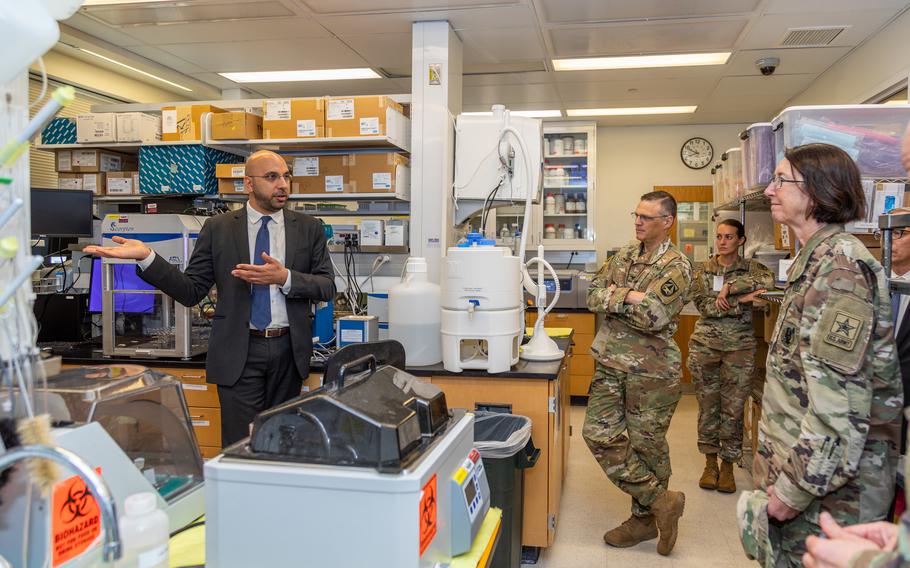The average age of a sailor manning the flight deck of a U.S. aircraft carrier is 19. Let that sink in. Charged with the massive responsibilities of maintenance, firefighting, damage control and first aid (to name a few), these inspiring individuals form a highly trained team that ensures our nation’s most lethal and effective means of power projection remains ready, operational and effective 24 hours a day, 365 days a year.
In each branch of service, young men and women accomplish extraordinary tasks in the name of contributing to something larger than themselves, managing immense levels of responsibility seldom experienced by their civilian counterparts of the same age. So why aren’t we adequately valuing their capacity for rapid learning, performance under pressure, and self-motivation when they begin the next chapter of their professional careers? These individuals have proven beyond a shadow of a doubt that they can adapt, overcome, and maintain a mission-focused mindset in the face of adversity. Organizations should be clamoring to recruit service members once they leave active duty. I, for one, want them all.
I firmly believe there is an industry to consider that can provide veterans of all ranks well-compensated, mission-driven jobs in a dynamic, high growth industry: biotechnology.
This highly regulated industry has many parallels with military structure, and guidance that veterans often find familiar. Federal regulations require that any drug sold in the country must be shown safe, and drug manufacturers must prove efficacy to the U.S. Food and Drug Administration. Drug developers must establish robust protocols for the manufacture, testing and advertising of drugs. These structures provide clear rules of the road, and highly detailed processes for implementation. Veterans often thrive and excel in these environments given the requirements of their prior professional experience. In addition, military service demands strict attention to detail and instills values such as dedication, tenacity and integrity in its service members that are desirable to all employers.
Despite the structured, mission-driven nature of biotechnology, many veterans do not consider pursuing employment in the industry. In addition to a possible lack of knowledge regarding the life sciences as a whole, there exists a belief that employees must have educations in biology, chemistry or medicine. This is a myth. Biotechnology companies require numerous non-scientific skillsets such as human resources, communications, logistics and program management, among others. These functions do not require a background in science, and military experience is highly applicable.
According to the Veteran Opportunity Report, 55% of veterans want to pursue different careers than the ones they had in the military. However, veterans’ ability to enter fields of employment unrelated to their military careers can be specifically challenging. Veterans are more likely to be hired in Department of Defense-associated industries or take jobs that share similarities with their service-related duties than they are to achieve employment in new areas.
This challenge to finding alternative fields in the civilian work force is multifactor. Some examples include difficulty translating military skills and accomplishments into resumes for civilian employers, lack of civilian professional networks, stigmas, stereotypes and hiring biases.
According to the Pew Research Center, only one in four U.S. veterans has secured future employment prior to re-entering civilian life. With an estimated 200,000 veterans transitioning out of military service each year, that leaves 150,000 veterans entering the job market. While some veterans view transition as an exciting, new opportunity to pursue other passions, for others, the complex and sometimes jarring process of adjusting to civilian life while simultaneously finding meaningful employment is overwhelming.
The biotechnology industry has taken notice that veterans have exceptional leadership potential outside of the military. Biocom California, through our nonprofit Biocom California Institute, has established a Veterans Initiative designed to connect new veterans and active-duty military members nearing transition with career opportunities that exist in biotechnology. The program gives them specific resources, mentorship, and networking access to established leaders in the life science industry. We’re extremely proud of the rapid growth and success of this initiative. Since inception, 60% of graduates of the program have secured employment in the industry.
Biotechnology has transformed the way that medicines are discovered and developed into commercially available products. The nation’s bioscience industry employs nearly 2 million people across more than 100,000 U.S. business establishments. It is a highly skilled and well-compensated workforce. In fact, bioscience industry wages, which average $107,000 across the country, are nearly double the U.S. average.
While the compensation is certainly attractive, I believe the mission-driven nature of the industry makes it highly suitable to veterans as well as active-duty service members nearing their transition to civilian life. Entrepreneurs establish biotechnology companies to tackle some of humanity’s greatest challenges. Serving as CEO of a California-focused member driven organization that advocates for the biotechnology industry, I speak daily with passionate scientists and business leaders who are working to discover and develop new medicines for children coping with devastating rare diseases, to develop cancer medicines that will add years to patients’ lives while also improving quality of life, and to modify crops so we can better feed the world. I can think of few missions with potential as profound as these.
Biotechnology offers numerous, significant opportunities to individuals anticipating or realizing transition from the military, as well as to veterans whose honorable service might have ended years ago. As a mission-driven, highly structured industry seeking to grow a disciplined, adaptable workforce, it is only natural that we should aggressively recruit veterans. Active duty, transitioning service members, and prior service members alike should all strongly consider this industry as a promising opportunity to leverage their skills, grow as leaders, and continue their service to humanity in an entirely new way.
Joseph Panetta is president and chief executive officer of Biocom California, an association representing the California life science industry.

Brigadier General Wendy L. Harter (right) visits the Emerging Infectious Diseases Branch at the Walter Reed Army Institute of Research to meet with Dr. Kayvon Modjarrad (left) and discuss COVID-19, vaccine research/development and other emerging threats. (Arlen Caplan/U.S. Army)